Newhouse Creative Advertising Student One of Two to Win Globally in 2023 Communication Arts Student Showcase Competition
Winning awards takes years for some creatives, but for Ryan Garret Conner ’23, creativity flowed naturally from his first portfolio class.
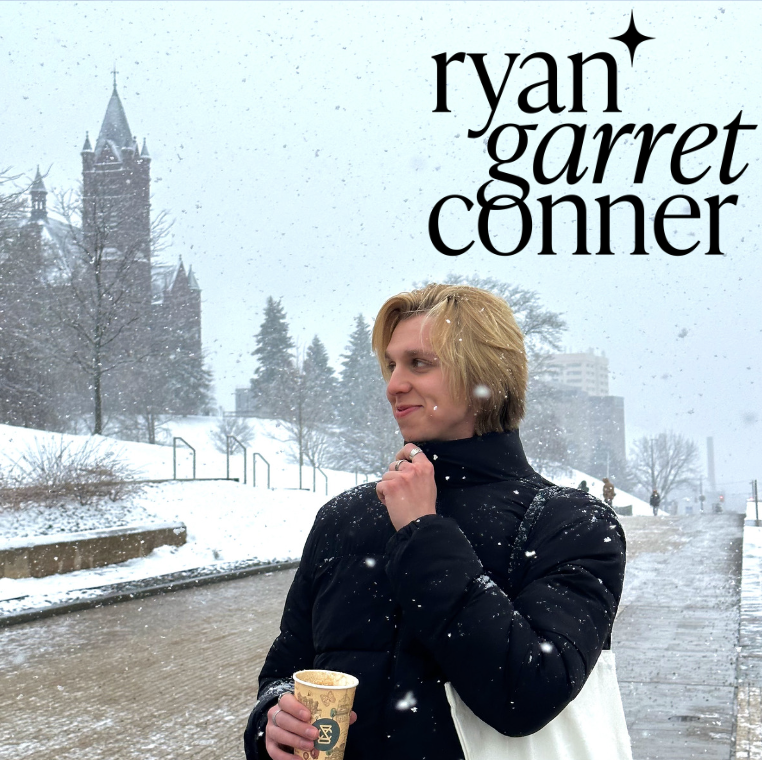
Earlier this year, Conner won in the 8th Annual Communication Arts Student Showcase, with his three winning ad campaigns showing in the March/April 2023 Communication Arts Issue. These campaigns were created in advertising professor of practice Mel White’s Portfolio I course, and Conner’s win marks the fifth time in a row that Newhouse students have won this competition since the school started submitting work five years ago.
The Communication Arts Student Showcase doesn’t just award one advertising campaign in a student’s portfolio, they award the entire portfolio of work. According to the Communication Arts Student Showcase 2023 Edition, students are chosen for this award for their “distinctive approach to creative problem solving and for producing work at a professional level.”
“Winning this competition reflects our curriculum, and it reflects the students’ hard work, creativity, and talent,” White said. “It’s not just one campaign, it’s a whole portfolio of work, so winning impresses Creative Directors. Communication Arts is well-respected in the industry.”
Conner’s work takes an interesting angle on the products he’s advertising. In fact, among his three winning ad campaigns, none of them actually show the product itself. Instead, he chose to convey the product benefit through visual solutions.
“From an art direction standpoint, I was inspired by ads I’d seen that use really unique visuals to breathe life into products that otherwise may not have any,” Conner said. “If you make something interesting that makes people laugh, you’ve made a moment — and, in my eyes, that’s much more impactful than just showing a bottle or listing features.”
Conner’s first campaign, “Homesick” was created for the Tide To Go Mini, an instant stain remover stick. Conner’s insight was simple and relatable—people get stains when they’re out or away from home. His idea zeroed in on the product’s strength and reliability; the power of a full washing machine in a portable-sized pen.
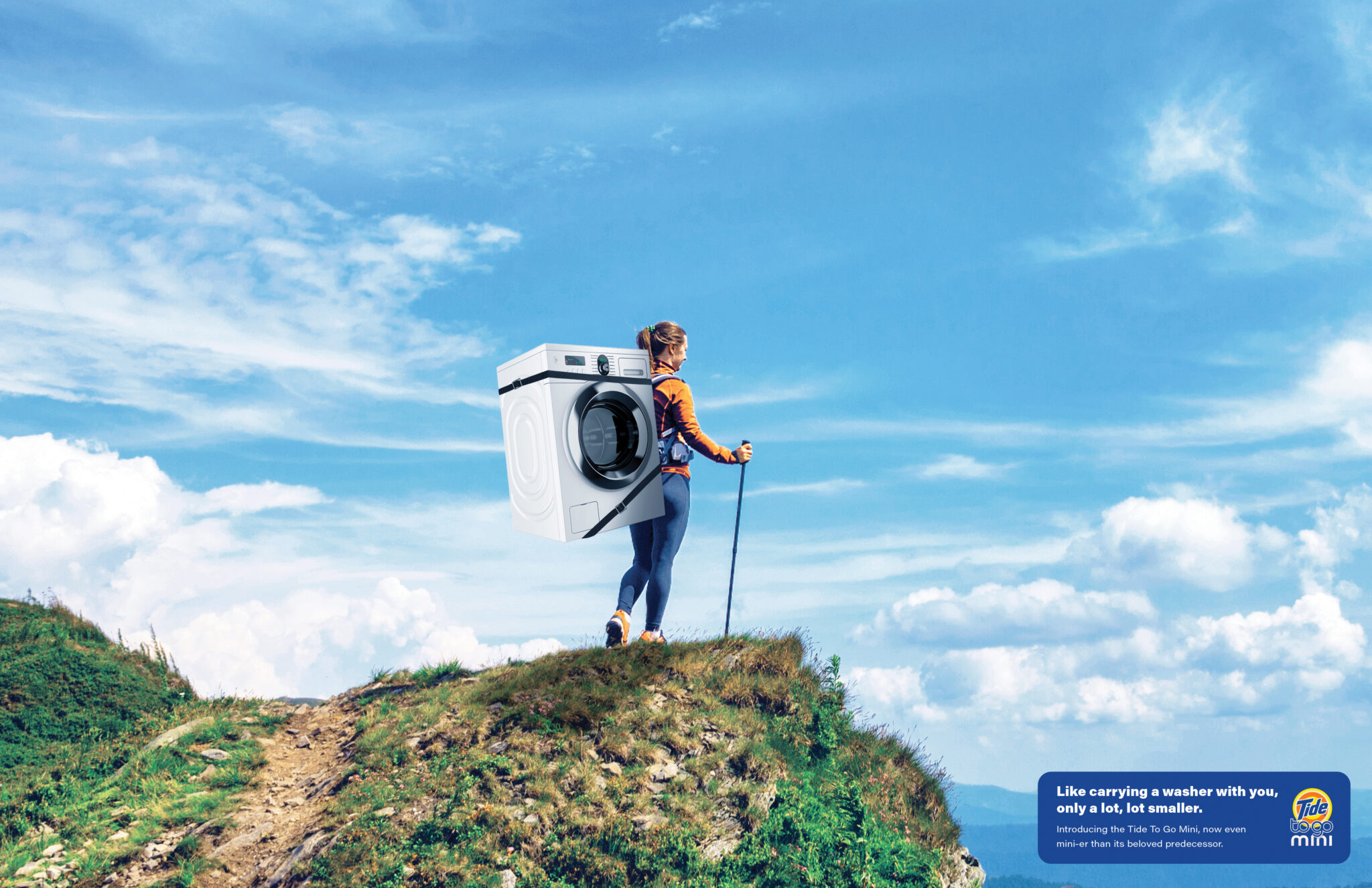
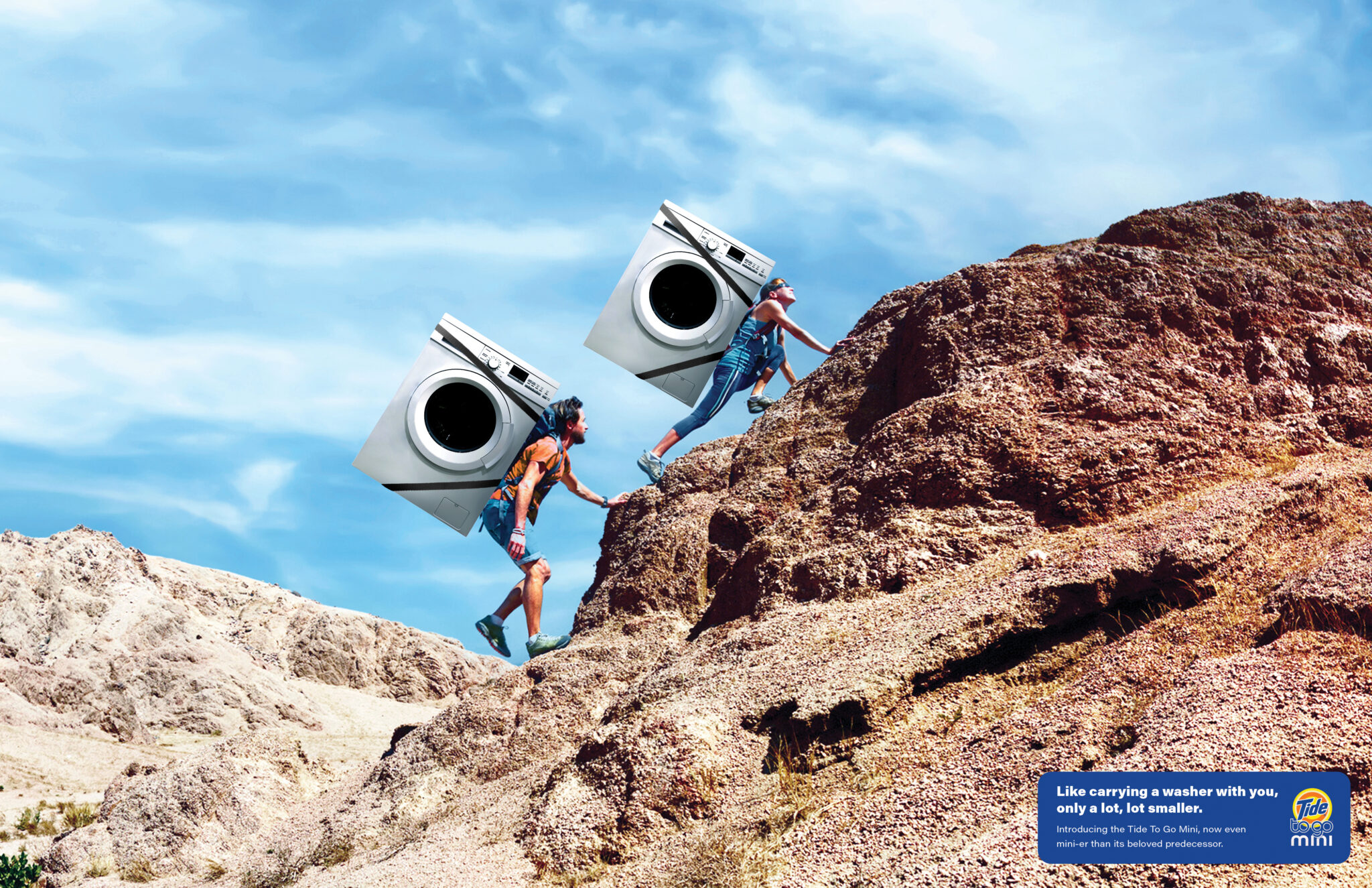
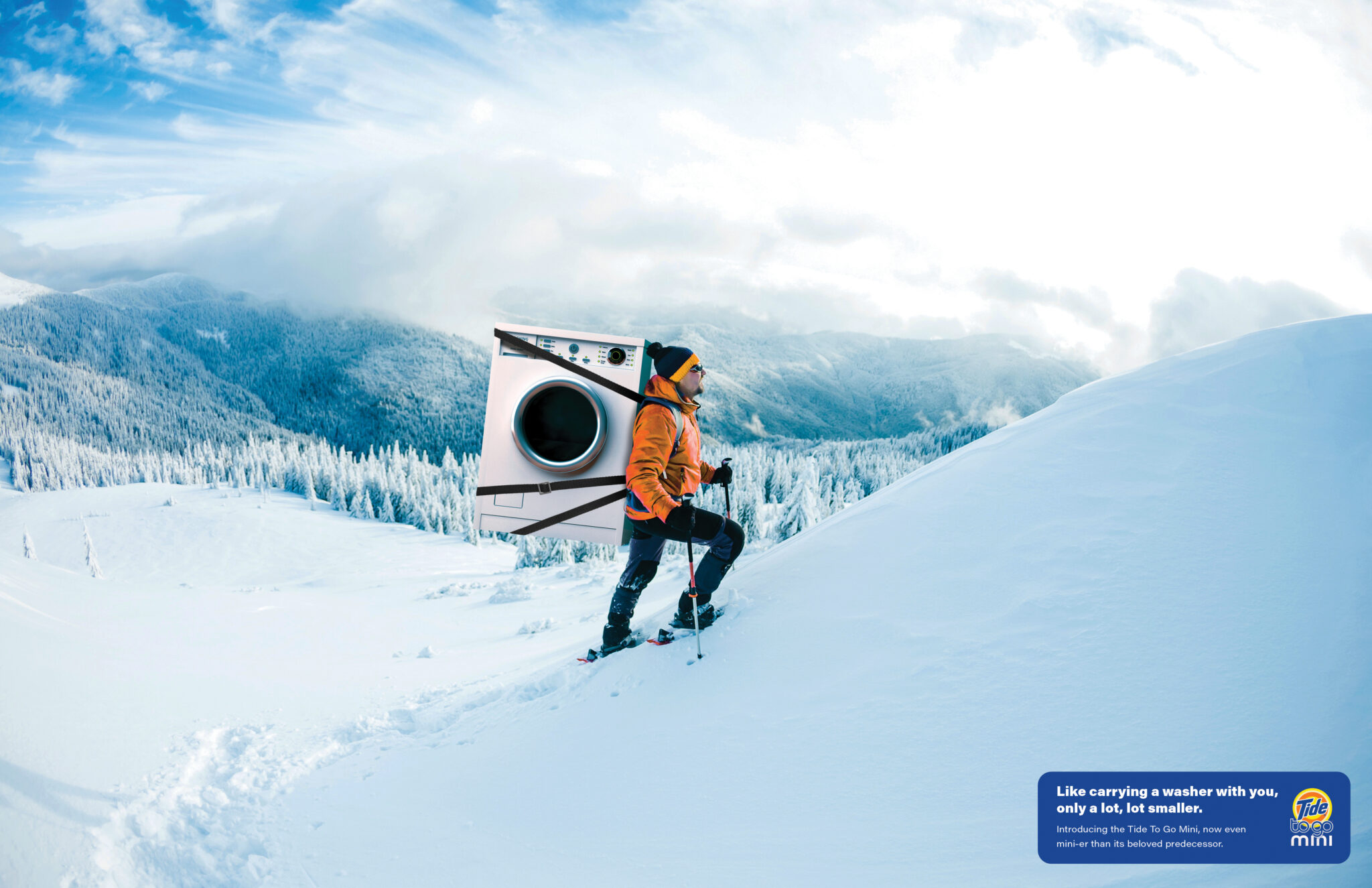
“The beauty of this idea is its relatability. That’s what makes a good insight,” White commented. “Ryan did a great job with creating a visual solution that conveyed a clever concept.”
Being adventurous doesn’t mean you have to be unprepared. Images of travelers trekking through nature with clunky washing machines strapped to their backs metaphorically explain the power of the Tide product.
Conner’s second campaign, “2,000 Uses” for WD-40 started off as an in-class activity with his copywriting partner, Mackenzie Murphy. By the end of two classes, it had established itself as a competition-winning piece.
The headline-driven solution focuses on Conner and Murphy’s big idea that WD-40 is a product with over 2,000 uses, but most people don’t take advantage of this. The cheeky copy insinuates that if other things in your life had this many uses, you’d be ahead of the game by now. For example, if your tutor had as many uses at the WD-40, you’d already be a genius.
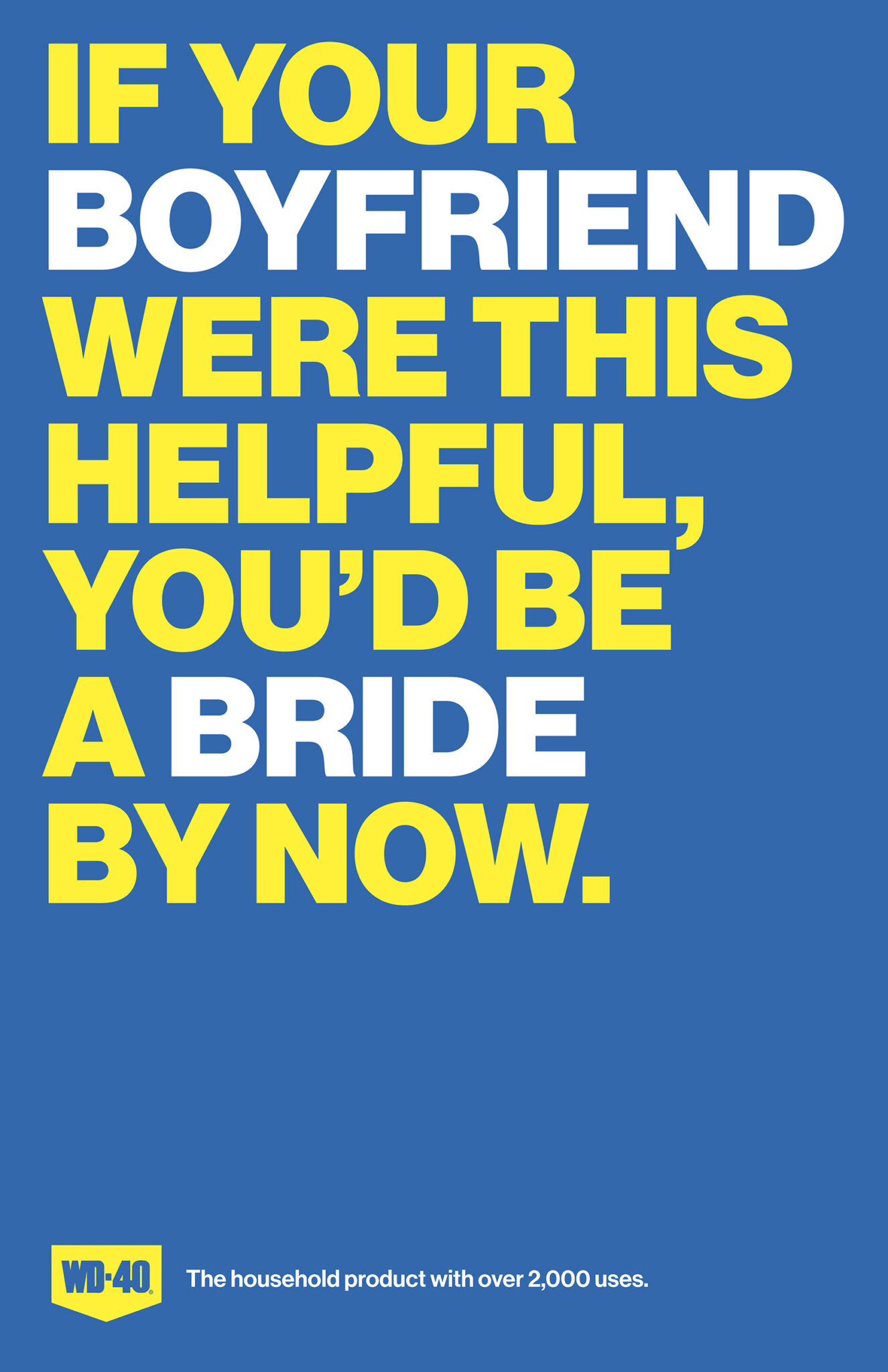
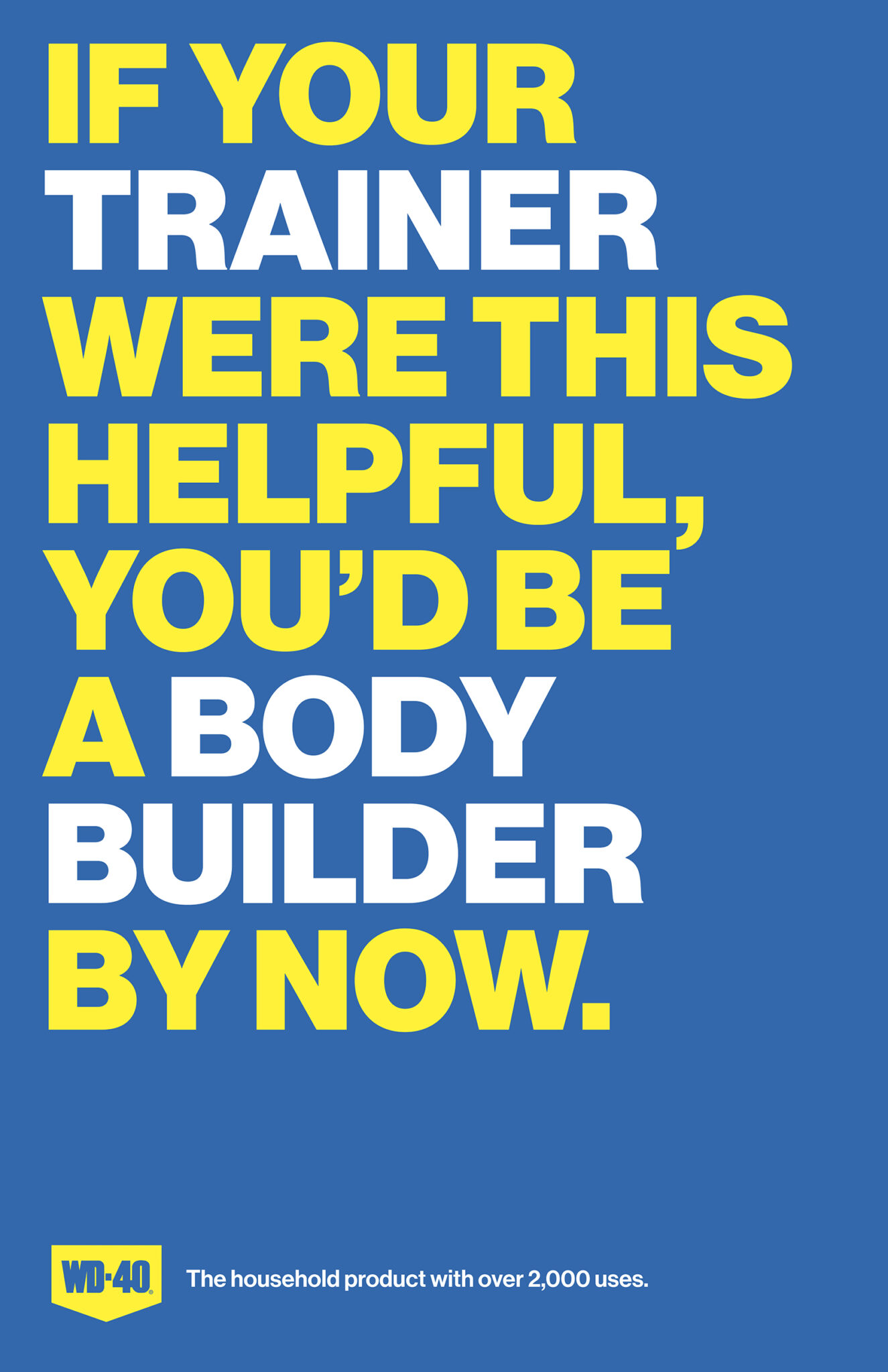
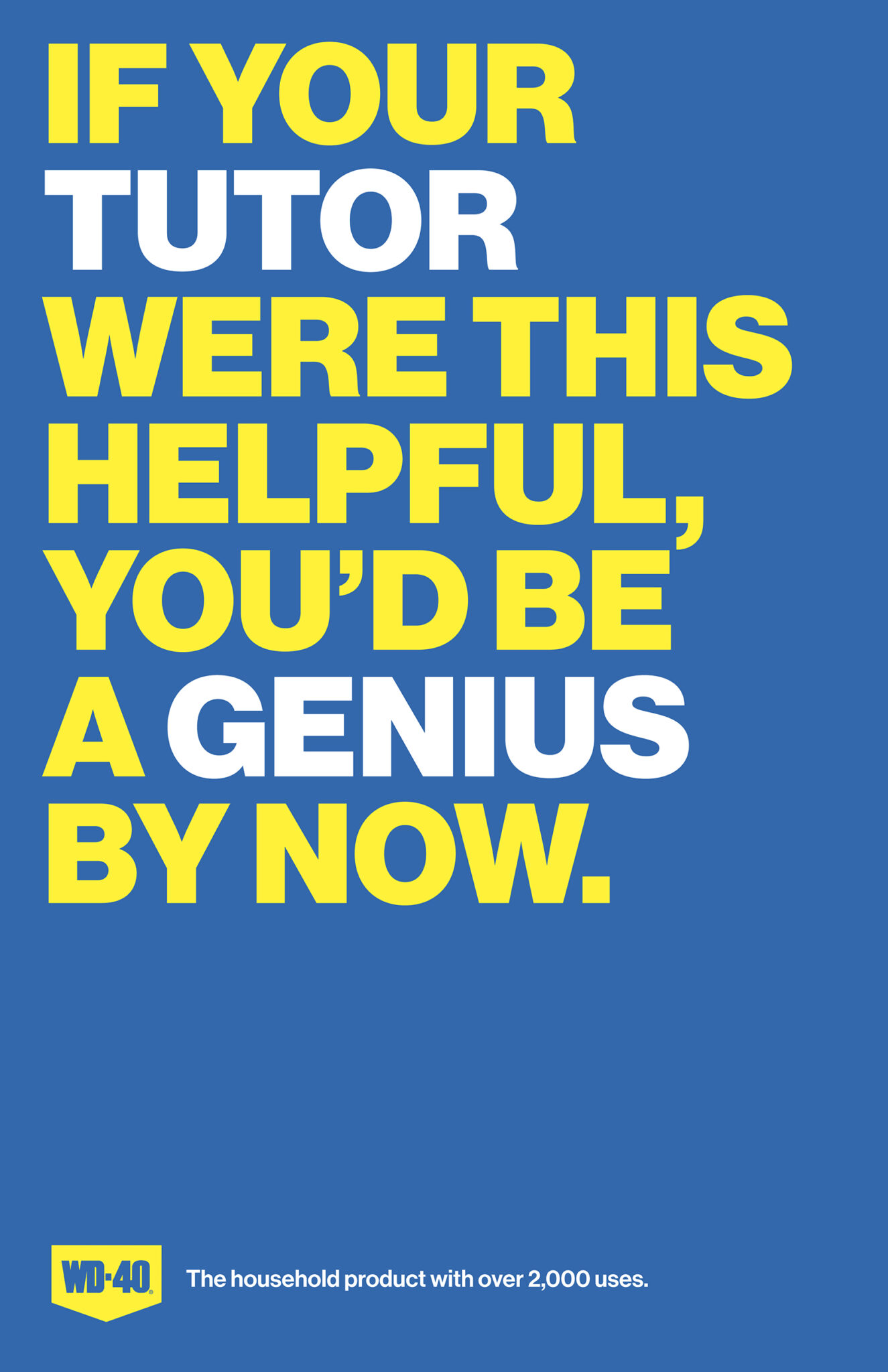
For Conner and Murphy, inspiration struck like lightning, and they ran with it from that first brainstorming session.
“I learned to take that first crazy thing I sketch down in my notebook and see where it can go,” Conner said.
“The synergy that happened between Ryan and Mackenzie was electric,” White said. “They went above and beyond with the in-class project and created the campaign on the computer. It was like magic. When magic happens with an art director and copywriter team, it’s very clear. And the same happens in the industry.”
Conner’s third campaign, “Auto-Pilot,” also relied heavily on a visual solution without any actual pictures of the 2022 Hyundai Sonata with Lane Keeping Assist. Conner reflects on his creative process behind his headline: “Accidents happen when you lose focus.”
“Instead of focusing on the feature, or the benefit it serves, I wanted to take a stab at the opposite. Cars need something like Lane Keep Assist in the first place because people can’t focus when they’re driving,” Conner said. “Instead of showing how cool the car is, I showed what’s wrong with the people driving them. I wanted to tap into that human error element in a much less intense, comical way.”
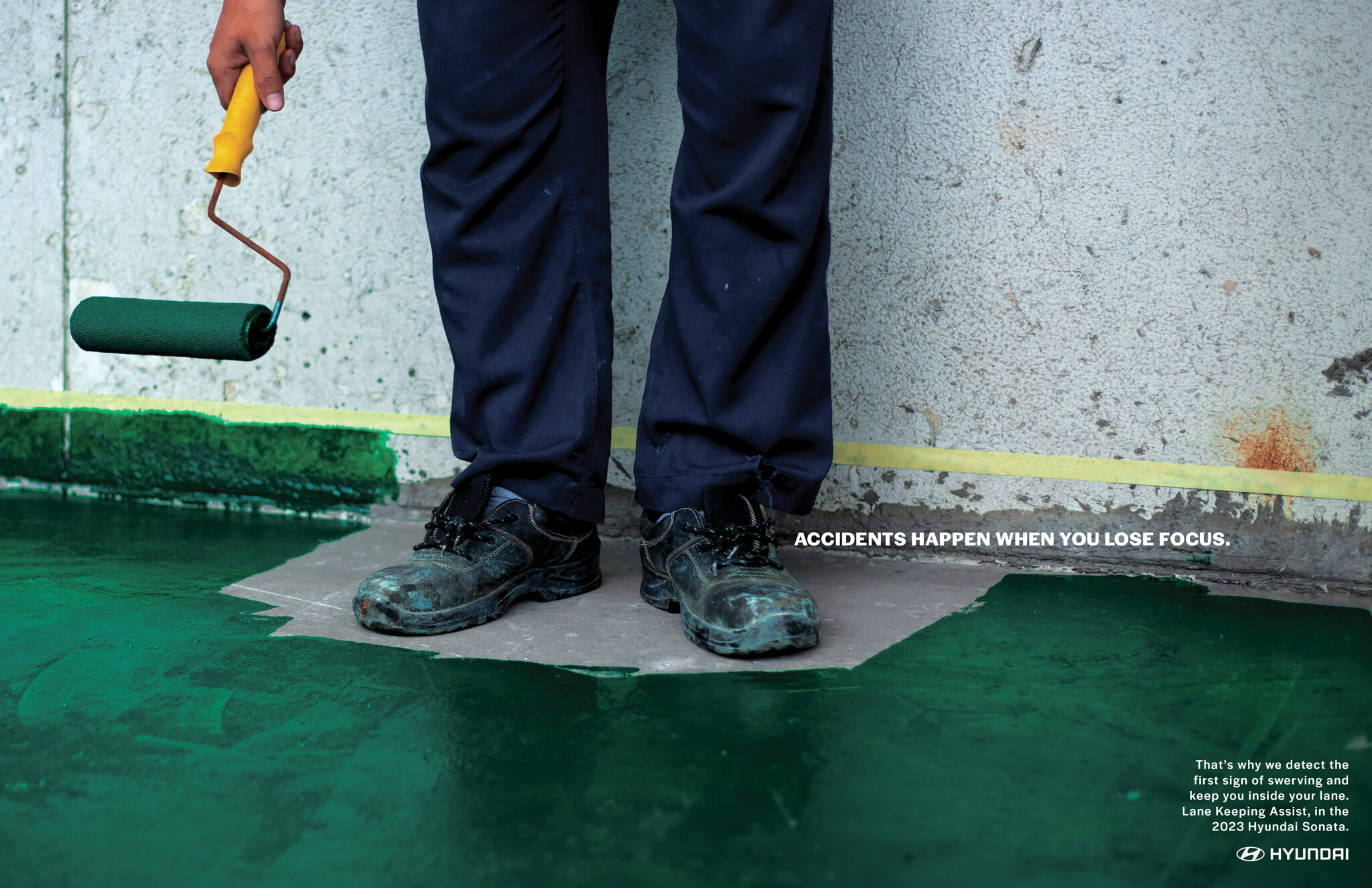
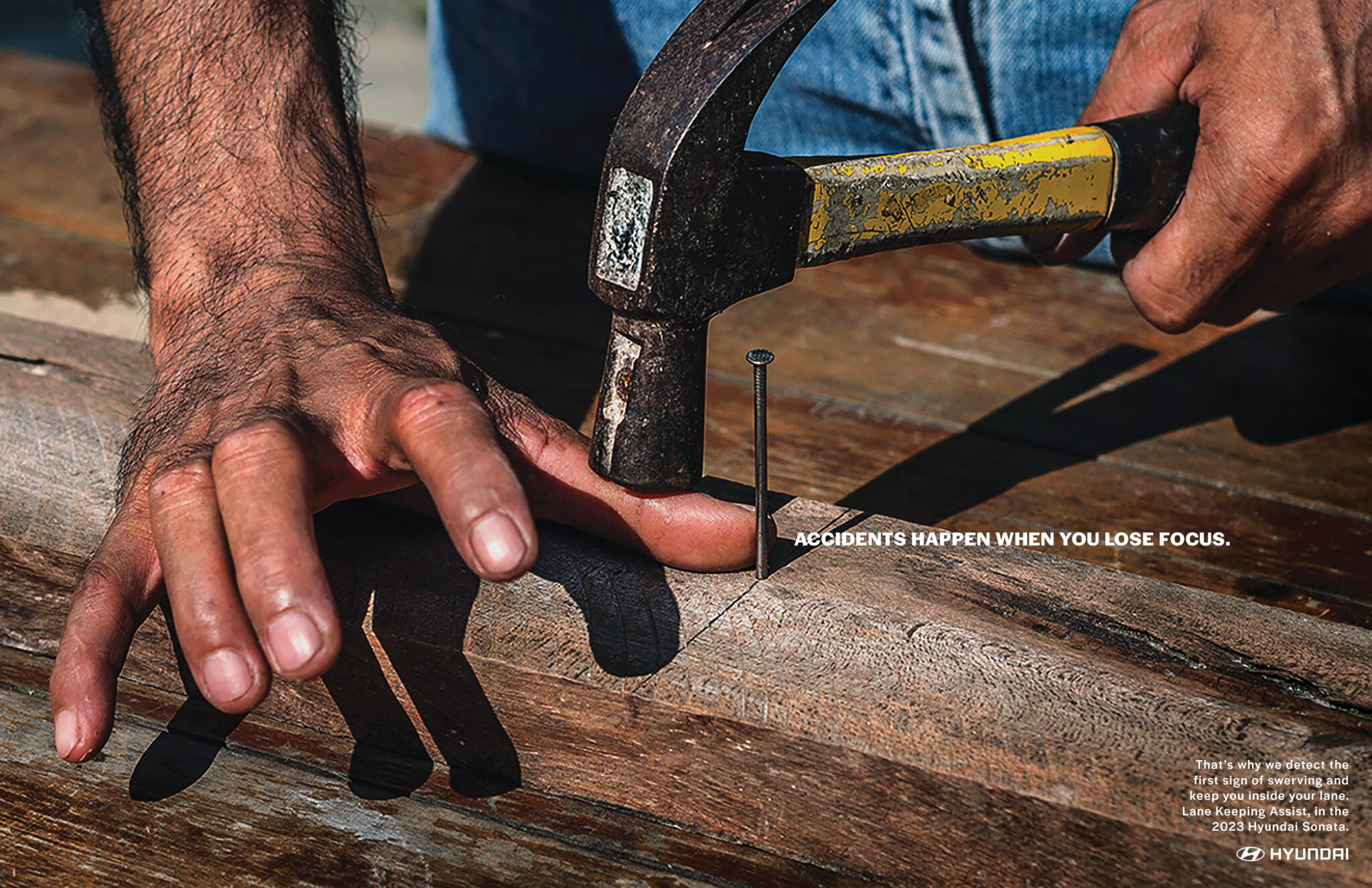
“He explored exaggeration and opposites, and the execution is flawless,” White said.
Even though cars and hammers don’t seem to have much in common upon first glance, they share the same risk of an accident happening. That’s the beauty of a visual solution—merging two unlikely situations and letting your audience forge the connections.
“Ryan soaked up everything like a sponge, and he was always there to learn. And when you’re a student, that’s important,” White said.
“Winning this competition means I get the chance to represent my school, Newhouse, and my professors, who helped make opportunities like this possible,” Conner said. “And it means that someone out there somewhere can recognize all the hard work that goes into a student perfecting their craft.”
Conner has a lot to be proud of during his time at Newhouse, especially after winning the Communication Arts Student Showcase, but his career is just getting started.
Emily Bright is a ‘22 graduate from the creative advertising track at the Newhouse School.